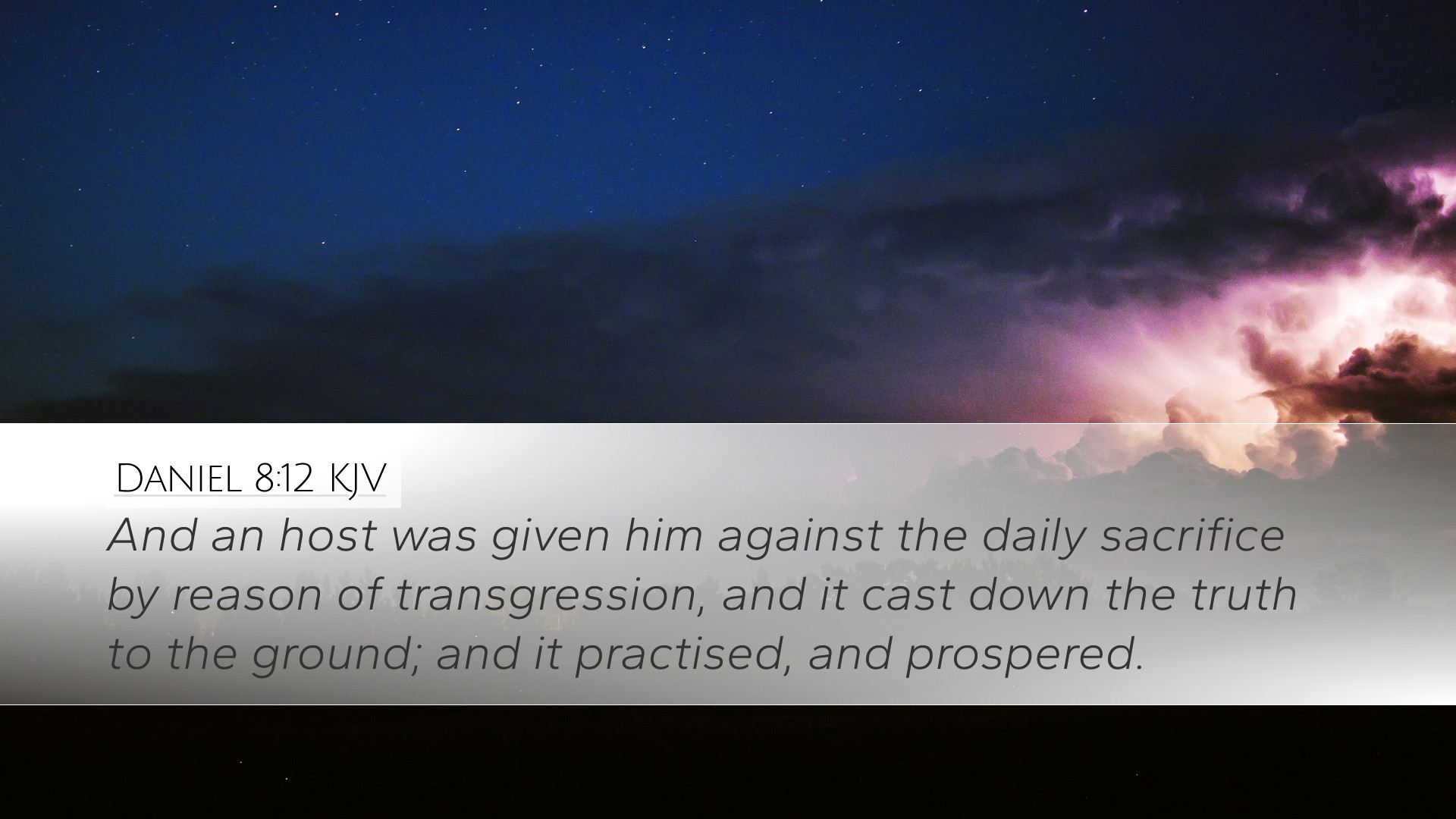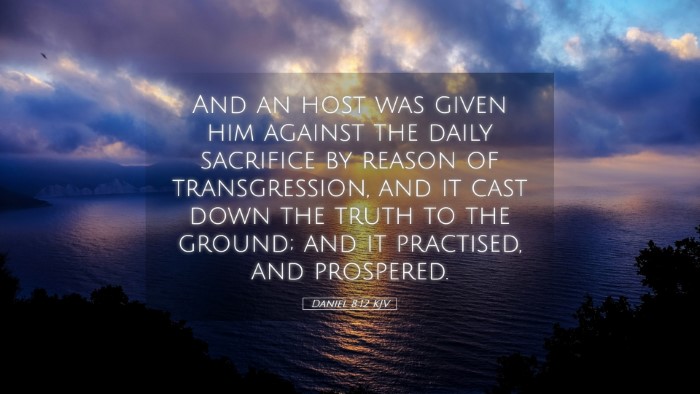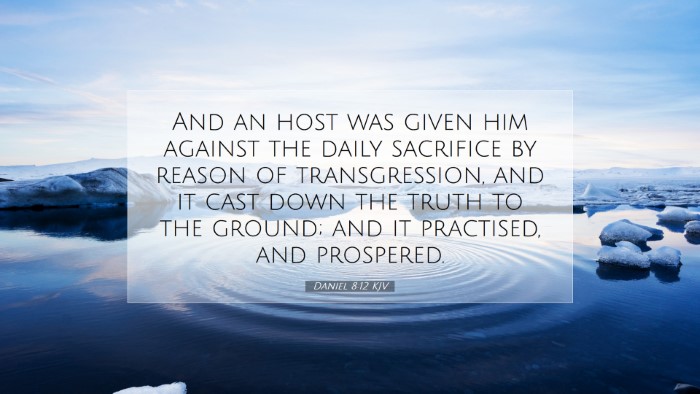Commentary on Daniel 8:12
Verse Text: "And a host was given him against the daily sacrifice by reason of transgression, and it cast down the truth to the ground; and it practiced, and prospered." (Daniel 8:12)
Introduction
The Book of Daniel is filled with prophetic visions that speak of God's sovereignty over earthly kingdoms and the ultimate triumph of His people. Daniel 8 is particularly rich in symbolism and emphasizes the conflict between divine truth and the forces of evil. This commentary seeks to explore the implications of Daniel 8:12, integrating insights from public domain commentaries by renowned theologians.
Contextual Overview
Daniel 8 presents a vision that is set during the reign of Belshazzar, showcasing two pivotal beasts that symbolize empires—the ram and the goat. This verse specifically pertains to the rise of the little horn which represents a tyrannical ruler, often linked to Antiochus Epiphanes who oppressed the Jewish people. Understanding this context is crucial for interpreting the emergence of opposition against the daily sacrifices and the truth of God’s Word.
Exegesis of the Text
- “A host was given him”: This phrase suggests that authority and power are conferred to the antagonist. Matthew Henry notes that those who oppose God’s ways are often permitted to act, revealing a divine allowance for human freedom amidst the unfolding of God’s plan.
- “Against the daily sacrifice”: The daily sacrifice represents public worship and communion with God, highlighting the focus on spiritual life. The attack on this sacrifice speaks of a deliberate attempt to suppress worship and devotion, as seen in the oppressive measures taken by tyrants throughout history, as pointed out by Albert Barnes.
- “By reason of transgression”: The transgression referenced here can be interpreted as a consequence of Israel's unfaithfulness. Adam Clarke elaborates that sin not only affects the individual but has communal repercussions, leading to a wider calamity. This serves as a warning regarding the spiritual condition of God's people.
- “Cast down the truth to the ground”: The 'truth' symbolizes the Word of God and the moral order established by Him. This phrase denotes a systematic effort to undermine divine truth. Henry emphasizes that such actions are part of the broader spiritual battles faced by believers.
- “Practiced, and prospered”: The success mentioned does not imply divine approval but rather reflects the reality that evil may seem to flourish for a time. Barnes reminds us that the perceived success of wickedness must be seen in light of God’s ultimate justice, where righteousness will eventually prevail.
Theological Reflections
This passage raises critical theological questions about the relationship between human agency and divine sovereignty. It serves as a sobering reminder for the church today regarding the importance of remaining steadfast in truth amidst societal pressures to conform.
The Struggle for Worship
The assault on the daily sacrifice illustrates how religious practices can be targeted in times of persecution. As commented by Clarke, the fight for authentic worship is perennial, demanding vigilance and resilience from God’s people to uphold the sanctity of worship amidst adversity.
The Role of Divine Providence
Despite the rise of the antagonist, divine providence orchestrates the outcome of history. Matthew Henry asserts that while God may permit evil to exert influence, He is ultimately in control. This assurance provides comfort to believers facing challenges, enabling them to look forward to God’s final vindication.
Practical Applications
- Vigilance in Faith: Believers are called to remain vigilant and steadfast, understanding that spiritual integrity is often challenged. In light of 2 Timothy 4:2, the church must continue to preach and uphold the truths of Scripture.
- The Importance of Worship: The daily sacrifices hold an analog in contemporary worship. Christians must prioritize collective and personal worship in a culture that seeks to diminish its value.
- Understanding Opposition: Recognizing that opposition is part of the Christian journey, it is essential to prepare believers for spiritual battles and encourage them to rely on God's strength.
Conclusion
Daniel 8:12 serves not only as a historical account of ancient Israel's troubles but also as an enduring testament to the spiritual battle that continues today. The insights gathered from Matthew Henry, Albert Barnes, and Adam Clarke allow us to appreciate the depths of this verse, encouraging believers to cling to the truth of God in a world that often seeks to distort it. In doing so, they reflect the resilience and hope of God's people, assured of ultimate triumph through Christ.


